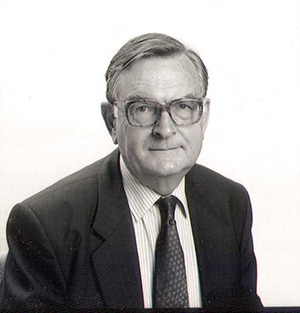-

-
A professional diplomat with a realistic approach to the world that lay around him, Hugh Cortazzi brought a new light to bear on academic studies of Japan. In retirement he devoted his efforts to illustrating the place that Japan's culture and history have taken in international terms since the nineteenth century. With long experience in Japan and his many contacts there he could never be satisfied by judging modern trends save in the light of the cultural, political and social context in which the nation had developed. He fully recognised the values that the maintenance of traditional rites and ceremonies bore in contemporary practice, seeing the ideals of the past as an essential part of Japan's living culture. To Europeans he showed how Japan had contributed to their ways of life; to Japanese he explained how traditional motives featured in the attitudes that a nation adopted. He demonstrated the beauties of Japanese culture to the west and Europe's achievements to his friends and readers in Japan.
Hugh's personal and direct approach to Japan, its peoples and its ways, matched the theoretical ways whereby others studied the historical background of the country's achievements. Few diplomats or scholars could emulate the energy, speed and determination with which he contrived to present the results of his research and observations to a general reader.. Along with his own writings he stimulated others, be they Japanese or European, to contribute to a number of corporate volumes that he would edit. These set out to record the contributions that individual men and women, be they scholars, diplomats, novelists, artists or sportsmen, had made to each other's nation. Historians may well thank him for the way in which he has thus kept alive the memory of the pioneers who introduced the one country to the other, and those whose devotion to their duties or self-chosen tasks enriched the relations between the two. Hugh's own name stands at the head of such a list.
Dr Michael Loewe, Clare Hall, Cambridge.
Sir Hugh Cortazzi